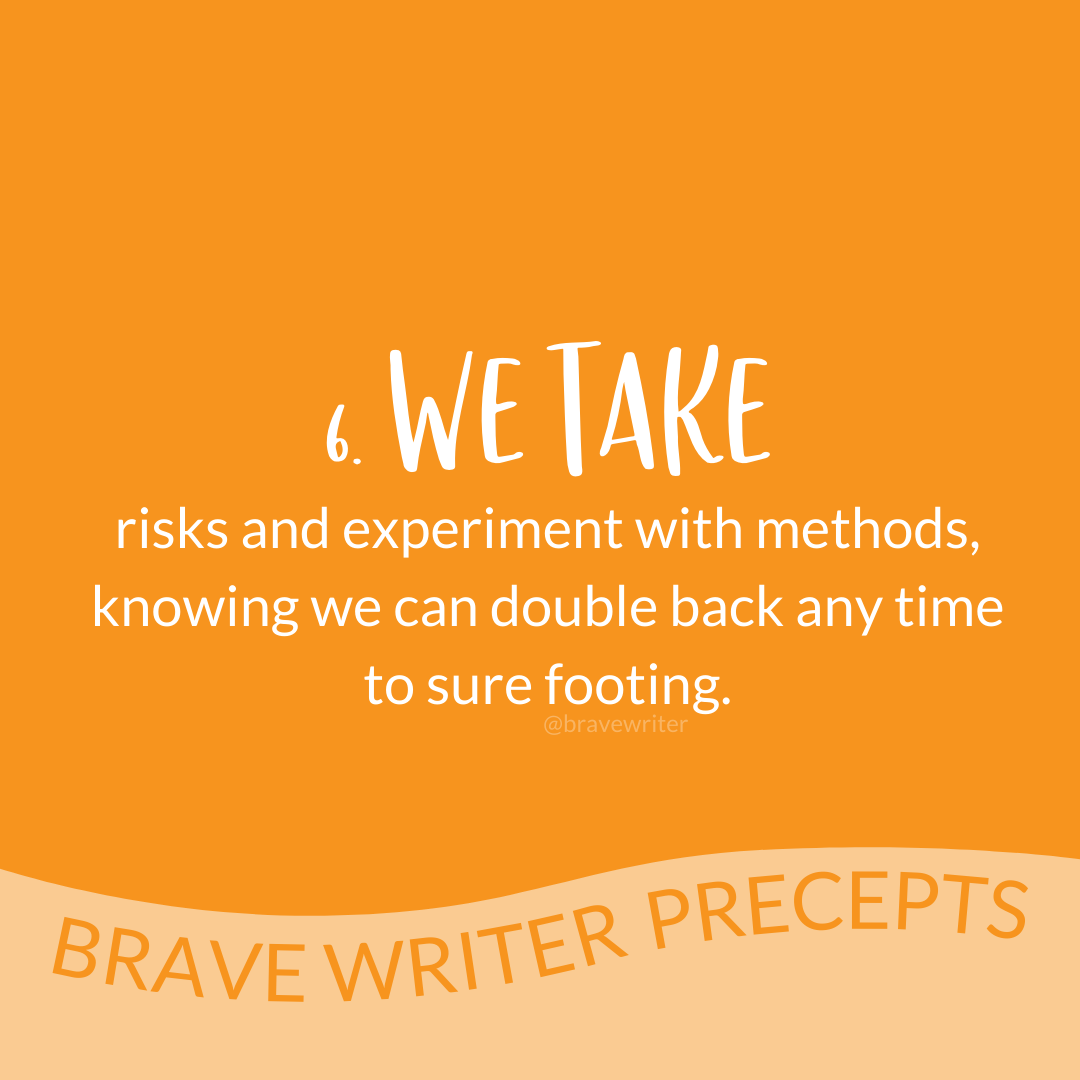
Remember when you had a strict time limit for a certain activity or project. Describe how that went.
New to freewriting? Check out our online guide.

Remember when you had a strict time limit for a certain activity or project. Describe how that went.
New to freewriting? Check out our online guide.
Tags: Writing prompts
Posted in Friday Freewrite | Comments Off on Friday Freewrite: Time Limit

Persuasive writing is everywhere! A writing form equally at home in the classroom, in the media, and on the pages of your favorite influencers.
In fact… BLOG POSTS like this one are a huge way you interact with persuasive writing!
Let me show you. I plan to call this essay:
“Beyond Five Paragraphs: Why You Should Take Essay Writing 102 This Fall”
A stressed-out student is hunched over a desk with a pot of coffee near at hand. A spotlight lamp shines down on an empty piece of paper. It’s midnight. There’s an essay due… tomorrow morning.
You know this is going to happen to your teen one day. Is your kid ready?
Although Brave Writer® has a reputation for “creative writing,” our approach is actually the most effective method to teach your teen how to write a persuasive essay.
Why should teens take Essay Writing 102?
This class uses college techniques taught in university combined with the creative writing strategies of Brave Writer®. The result? A new twist on learning the old ways.
Researchers from the University of Sussex report that creative writing processes have a strong link to proficiency in essay writing. Creative writing strategies have been found to enhance academic writing in university. (Creme & Hunt)
Essay writing is more than just a format. We explore the spark that leads to all good persuasive essays—taking an informed stance. Students spend the whole first week of Essay Writing 102 focusing on learning and thinking critically about their topic.
Findings from The Centre for Cognitive Processes in Learning (Queensland University) report that students need more focus on the understanding of their topics, with less emphasis on just retelling information. Competent essay writing skills require a “relationship between students’ understanding of the content and their ability to write about it.” (Campbell, et al.)
Good essays require a series of elements to work together. “Write an essay with 5 paragraphs” doesn’t cut it. Our class covers:
In a study about metacognition, researchers found that giving students “topics and simple instructions” was less efficient than a more complex approach, whereby the writing structure involved more “planning and revising, monitoring, evaluating, and editing.” (Cer)
The expository essay is the primary writing format that ought to be learned before college. This class helps students become comfortable with the demands of academic writing using the persuasive essay format.
Brave Writer® takes teaching the essential skills of persuasive essay writing to the next level by utilizing a creative, multifaceted, and complex approach.
Bottom line? You can sign up your teen here:
Campbell, J., Smith, D. & Brooker, R. From conception to performance: How undergraduate students conceptualise and construct essays. Higher Education 36, 449–469 (1998). https://doi.org/10.1023/A:1003451627898
Cer, E. (2019). The Instruction of Writing Strategies: The Effect of the Metacognitive Strategy on the Writing Skills of Pupils in Secondary Education. SAGE Open, 9(2). https://doi.org/10.1177/2158244019842681
Creme, P., & Hunt, C. (2002). Creative Participation in the Essay Writing Process. Arts and Humanities in Higher Education, 1(2), 145-166. https://doi.org/10.1177/1474022202001002003
Posted in Online Classes | Comments Off on This Blog Post Is a Persuasive Essay

With the holiday season approaching, I’ve been hearing all kinds of advice about boundary setting. As a grandmother myself, I’ve experienced firsthand how relationships and boundaries evolve with adult children over time.
I think what’s missing from most modern conversations about boundaries is how important it is to start from a place of:
Boundaries should be like fences, not walls. Walls are immovable and permanent, and you can’t see through them. Fences can be moved, they can be adjusted, and they have gates that let people in and out.
What are your thoughts about fences versus boundaries? Reflect on what it feels like when someone sets a boundary (a requirement) for you versus considers possible solutions that take both your needs and theirs into account.
In Transition
Everyone is in a transition as we grow into adulthood. Your parents have never been parents of adult kids, just like you’ve never been parents of children.
When you’re younger, you hit different developmental stages in your life where having your parents around or spending a ton of time with them at some point feels like it interferes with your developing autonomy.
But remember, on the other end of the relationship are aging parents who need to grieve the loss of that level of connection and intimacy. Most of your parents’ desires come from having lived in that front-row seat to your life. It’s a pretty hard habit to quit. Plus, these kinds of life changes can bring up deep feelings around aging and mortality.
As an adult, if you want to change habits in a family, acknowledging the losses and grief of aging is essential to keeping everyone’s goodwill. Give your parents a little bit of time and space to process the conversation about boundaries. It is natural for them to experience feelings of sadness and rejection. That is human.
It might be helpful if you remind them of how they might have felt when they were young parents like you, starting their own family traditions that meant so much to you as a kid. Explain that that is what you want to create for your children.
Of course, if your parents react badly to boundary conversations, no, it’s not your responsibility to rescue them– but it might be yours, in a connected, loving relationship, to acknowledge that their grief is real, that their disappointment is meaningful. And it doesn’t mean you’re going to change your behavior.
THE BOTTOM LINE: When setting boundaries, start with curiosity about what it is like to be in your parents’ shoes. Don’t just assume that your parents will know what it is like to be in your shoes. Treat your family like human beings who love you, not like people who are designing strategies to undermine your well-being and autonomy. They are just people in a relationship with you who need to learn a new method or a new way of relating to you.
Boundaries as Fences, Not Walls
Boundaries should be like fences, not walls— Walls are immovable and permanent, and you can’t see through them. Fences can be moved, they can be adjusted, and they have gates that let people in and out.
You don’t have to set boundaries as though you’re setting up a new once-and-for-all pattern of behavior that will never change. When you do that, you’re actually creating a system you have to defend rather than an exploration of possibilities with the people you love.
Plus, you may be walling yourself and your young family in an experience that you don’t actually end up enjoying. You may want to spend one holiday as a small unit, but then change your mind the next year. Having different experiences each year is ok! That’s why starting from a basis of open communication is so important.
And remember: Expressing needs and emotions in these conversations is not some kind of vote. Saying, “I don’t want to do Thanksgiving with you this year” is not a vote against your parent. Your parent saying, “That makes me sad” is not a vote against you. It’s just people navigating a change of status in the relationship.
Gentleness towards all Generations
Lastly, I think we would all do better in these situations if we bring gentleness to all generations. People from different generations are taught different values and different vocabulary.
Often we get caught up in telling people how to behave or how to speak. Instead, we should give them a meaningful experience of the impact of their behaviors on us. For example, rather than policing certain words, we should tell our loved ones how those words land with us.
FINAL NOTE
Of course, addicts, abusers, and people with mental illness are in a separate category when it comes to boundary conversations. You do have to deal with those conditions differently. But you can still come from a place of love and set boundaries for yourself rather than rules for them.
Produced by NOVA Media
Posted in Podcasts | Comments Off on [Podcast #211] The Danger in Setting Boundaries

Black Friday Weekend (11/24-26) and Cyber Monday (11/27) are around the corner.
We have offers for both.
Prepare NOW while your hands aren’t covered in flour and pie crust.
Shop the following weekend!
Have questions? Write to us at [email protected]—or Live Chat on Cyber Monday!
Good for you! Good readers get better deals.
Get an even BIGGER DISCOUNT code by signing up for Brave Writer’s text messages.
We’ll send you the exclusive discount code via text message on Cyber Monday! (And, surprise deals for Black Friday Weekend!)
PSST: We have a FREE gift for you!
Download our cozy December Build-a-Unit-Study guide!
Posted in BW products | Comments Off on 2023 Black Friday and Cyber Monday!

The sixth Brave Writer precept is: We take risks and experiment with methods, knowing we can double back any time to sure footing.
When learning becomes stale, the best strategy is to take learning risks, and to experiment with different methods.
For instance, what if your child got to pick any page in the math book to work on today? Does it matter if that child knows how to do the problems on that page? It doesn’t! Why? Because the fact that the child had curiosity and picked a page that looked interesting provides the foundation for teaching and experimenting and learning.
Can the child use skills they already have to figure out what that page is trying to teach? Is there a meaningful approach the child could take without any help from you? What does a child need to know that they don’t know yet simply by looking at that page?
Same thing is true for any subject. Perhaps you hand your child the book you’re reading aloud and say to your child: “Pick one sentence on this page that you think is interesting for any reason.” If the child comes back and says all the sentences are boring, ask them to find the most boring sentence. Discuss why.
What would happen if you told your child that it was time to write, but every sentence had to end in an exclamation point? How would that impact what they wrote?
What if you asked your child to write on a sheet of paper in landscape view rather than portrait? How about if your child used a different color pen for each word?
We’re only limited by our imaginations and our willingness to depart from the conventional. Be brave! You can’t blow it.
No matter what you do, you learn something.
Posted in Brave Writer Philosophy | Comments Off on Brave Writer Precept #6: We Take Risks

I’m a homeschooling alum -17 years, five kids. Now I run Brave Writer, the online writing and language arts program for families. More >>
IMPORTANT: Please read our Privacy Policy.















